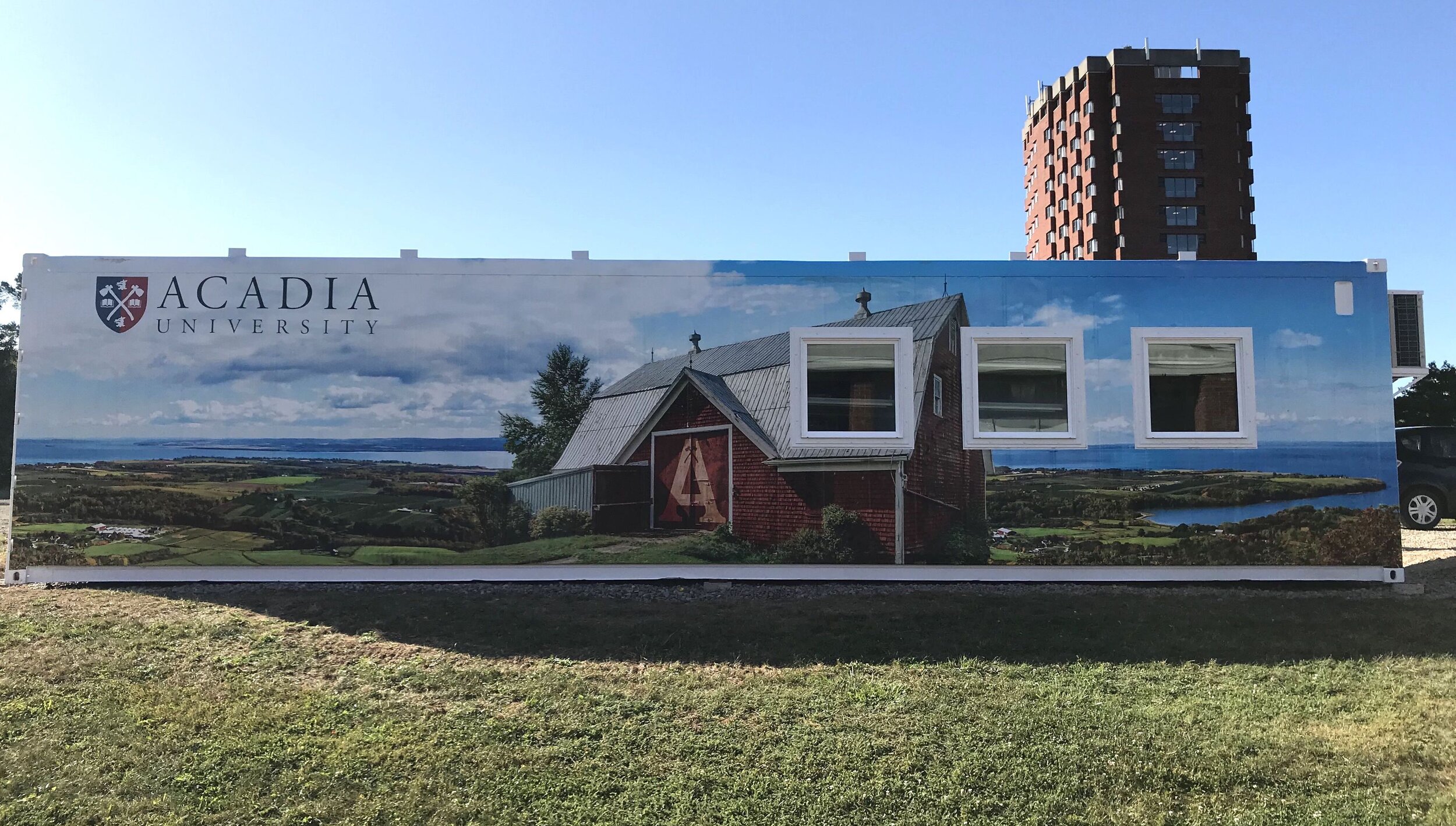Growing Local for a Greener Campus
Out-of-the-box thinking means fresh produce for campus and community
Eating local is now easier and greener at Acadia University in Wolfville, Nova Scotia. The Growcer is an out-of-the-box local food solution located steps away from the dining hall.
Acadia partnered with its food service provider Chartwells to bring the hydroponic, vertical growing system housed inside a repurposed shipping container to campus. It will produce greens and microgreens year-round and employ students. It's the first of its kind for post-secondary institutions in Atlantic Canada.
"This is just one example of out-of-the-box thinking at Acadia in support of our students and greening the campus," says Jodie Noiles, Acadia's Sustainability Coordinator. "This initiative builds on an existing commitment to purchase and use local produce in our food services."
The Growcer is part of an ambitious new Food Services Plan for the campus. Created by a committee of Acadia students, faculty, and staff along with public health experts, the plan focuses on healthy eating, sustainability, and affordability. "It is one of the most comprehensive and progressive plans for food services across Canada," says Noiles.
Green Ideas
Because of its sealed environment, the Growcer can produce 100 kgs of fresh greens each month year-round. It uses 95 percent less water than conventional farming and uses no herbicides or pesticides. By producing food with fewer resources, Acadia lowers greenhouse gas emissions associated with campus operations and there is fresh produce nearby year-round.
“I'm excited to grow a variety of greens to complement the ingredients we get from farms in the Annapolis Valley,” said Executive Chef Peter Welton. "I can’t wait for Acadia and the Wolfville community to try our Growcer harvest."
During official launch week from October 21st to October 25th, Acadia Dining Services will feature lunch specials made with Growcer greens and diners can learn more about the operation.
The mini-hydroponic farm builds on many campus initiatives like the Acadia Community Farm. At the farm, students operate a half-acre educational garden and grow vegetables for the dining hall and local foodbank. There is also a student group, Acadia Food and Fork, that grows beans, lettuce, and tomatoes in the K.C. Irving Environmental Science Centre to share with students.
Supporting teaching and research is also an important part of the Acadia Food Services Plan. “Acadia students learn the importance of innovation and entrepreneurship as part of their studies, and the Growcer project is a new opportunity for them to put that learning into practice,” Noiles explains.
Acadia’s food service provider, Chartwells, is committed to delivering a student-first experience on campus. Each year, they plan to donate 10 percent of the Growcer crop to on-campus and local food banks. The initiative is part of Chartwells' Thinking Ahead Giving Back vision, which includes tackling food insecurity. The company will also provide volunteer hours for community support of mental health and social issues facing students and create 1,000 jobs through a more focused commitment to student employment.
Article reposted with permissions from Acadia University

